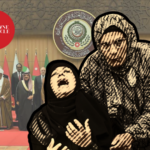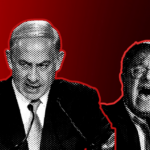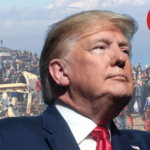Europe and the Middle East: Will EU Be a More Just Mediator?
By RAMZY BAROUD
Europe has showed greater willingness in recent months to play a larger part in the Middle East’s most protracted conflict, that of Israel and Palestine. But willingness doesn’t necessarily indicate readiness.
For the European Union (EU) to be truly ready to take on a conflict of such magnitude, it must fully and clearly abandon its old ways of almost complete subservience to US-tilted and pro-Israel stances, and of refusing to treat Palestinians as equally deserving of the same rights and security gladly assigned to Israel.
In other words, Europe would have to function as a truly independent political body, and renounce the damaging policy of treating Israel with utter sensitivity, and perceiving Palestinians, at best, as a people undergoing economic hardship.
True, Palestinian projects funded by the EU are many and far reaching, but while Europe has demonstrated a degree of generosity towards Palestine, it has never had a fraction of the leading role that the US gives itself in the region. This is partly because while Israel mostly welcomes American involvement, it has long shunned a significant European role under various guises and logic, claiming Europe is soft on terror and that the continent is rampant with anti-Semitism.
Israel is, of course, referring to the fact that Europe has been much more receptive to the idea of dialogue with Palestinians, even with groups which are dubbed "terrorist". Public opinion polls in much of Europe have long reflected much greater sympathy for Palestinians, and regarded Israel as a danger to world peace. From Israel’s point of view, that qualifies as anti-Semitism.
Thus, the nature and extent of any European role has always been delineated by the US and Israel. If the EU, or one of its countries dared to defy its appointed role, Israel would immediately cry foul and the organization would simply back off. Even when Israel bombed several projects that were fully or largely funded by the EU in Gaza and the West Bank, including Gaza’s electric generator, the EU failed to act in any consequential fashion, aside from a measly and ineffective statement.
While Gaza is punished by Israel and others for electing Hamas, and as the EU watches the unfolding human drama, it continues to be Israel’s largest trading partner.
But is Europe ready to step up to the challenge of taking over as America’s influence is likely to wane in the coming months and years? And why is there growing media focus – especially in Israel – on the rising EU role and involvement in the Middle East?
There are many signs that reflect a clear shift in the EU’s level of involvement in the Middle East. Starting in March, several European heads of state traveled to Israel in highly touted and "historic" trips, including a visit by German Chancellor Angela Merkel, French President Nicolas Sarkozy and British Prime Minister Gordon Brown.
These appearances were followed up by equally important visits by European dignitaries, last of whom was French Foreign Minister Bernard Kouchner in early-October. The number of official statements made by the EU, and the nature of these statements are all promising a different kind of European involvement. Yet again, so what?
Some of the officials used their visits as an opportunity to chide Palestine on violence, terrorism and so forth. Some failed to utter a word of disapproval over Israel, as if a country that maintains a decades-long, and oppressive occupation, as well as a long record of violating international law, can do nothing wrong.
That said, there is no denying that Europe has been more, if not much more sensible in its treatment of Palestine, and not just because of its many vital development projects in the occupied territories. Europe unlike the US, doesn’t always view its relationship to Palestine as an arrogant power with a list of uncompromising demands which have to be fulfilled or else.
The US’s fundamentally erroneous approach to the Middle East in general, and Palestine in particular, has created untold animosity towards Washington, and generated a lack of trust that will eventually undermine its position in the entire region – a process currently underway.
Europe on the other hand, still has a chance, and a good one. True, Sarkozy sang the Israeli tune like the "true friend of Israel" that he is during his visit, but he also dared to criticize Israel’s settlement policies, even before the Knesset. The EU has followed the US-Israel lead of isolating, and eventually destroying the fresh Palestinian democratic experience, but some European countries seemed willing to engage Hamas, and invite some of their top officials for "unofficial" dialogue.
Various news outlets reported in April that Switzerland had invited then prime minister of the newly formed unity government, Ismail Haniyeh, for his first official European state visit. Norway and other European countries seemed willing to explore various channels of dialogue with Palestine.
Although very careful with his wording, French Foreign Minister, Bernard Kouchner, said in a Jerusalem news conference on October 5, 2008: "Officially, we have no contact with Hamas, but unofficially, international organizations working in the Gaza Strip – in particular, French NGOs [non-governmental organizations] – provide us information." His statement was understood as an indication of French willingness to indirectly talk to Hamas, the isolation of which has spelled disaster for the Palestinian communities of Gaza.
It’s no secret that the EU is positioning itself to play a greater role, but little is known of what that means. Is that new role orchestrated jointly with the US and Israel, or is it taking place in spite of both governments? The answer would certainly help determine the future direction and degree of the EU’s involvement.
If the EU is there to supplement the US’s expected absence due to economic crisis at home and endless wars abroad, then little change is expected. If, however, Europe has decided to tackle the conflict as an independent power, separate from the discredited US, then it’s an entirely different story.
-Ramzy Baroud (www.ramzybaroud.net) is an author and editor of PalestineChronicle.com. His work has been published in many newspapers and journals worldwide. His latest book is The Second Palestinian Intifada: A Chronicle of a People’s Struggle (Pluto Press, London)










































0 Comments